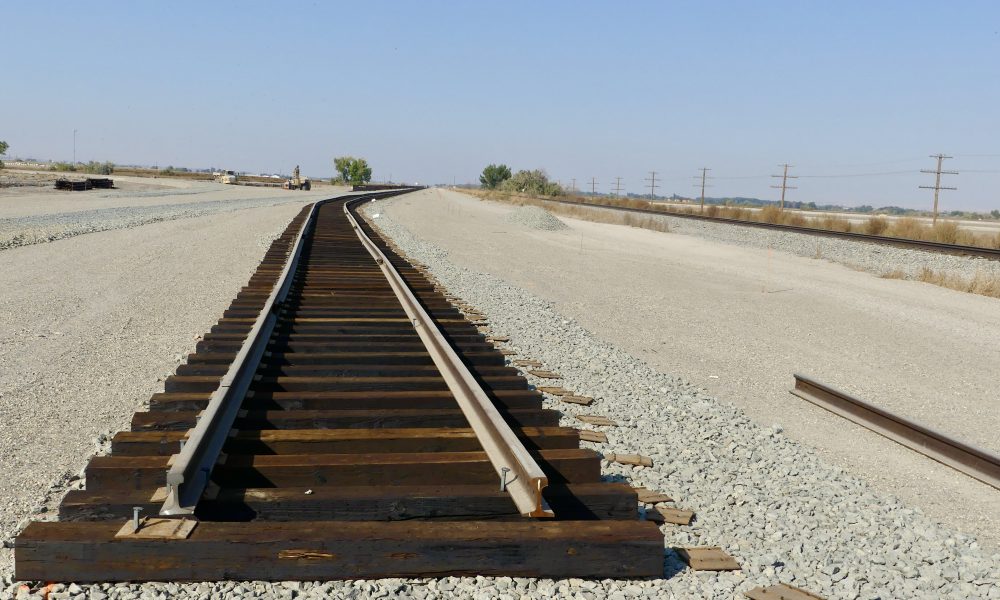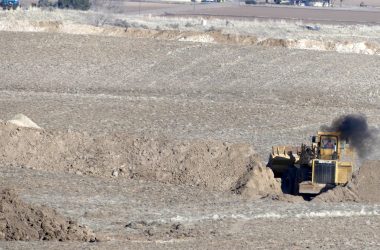The Malheur County Development Corp. has ignored state law and contract provisions setting out how contractors’ final bills will be paid.
As a result, the development company owes more than $850,000 it doesn’t have -– and that tab grows by the day. Those constructing the Treasure Valley Reload Center are owed interest on that unpaid sum, but project manager Greg Smith said his team has no record of that additional cost or even the interest rate.
The mishandled payments add to the disorganization that has bedeviled the Nyssa project, still far from complete.
Smith recently had to advise officials that a rail spur he intended to put off for years was in fact required before the reload center can open. The need for the spur was spelled out under contracts that project leaders executed as long as three years ago.
The $2 million suddenly needed for that extra rail spur and the unknown total of interest that will have to be paid to contractors add to the financial strain facing the reload center. The development company and its team are seeking $8.5 million more to finish their over-budget project.
But the pending contractor payments are no surprise. Before construction started, the development company signed legal paperwork defining how to handle such payments.
When contractors agree to a publicly-funded job, one condition they accept is something called “retainage.”
The concept is that as work progresses, contractors submit bills for what’s been done.
But they don’t get full payment.
Public agencies typically hold back 5 percent of what’s owed. The purpose is to ensure public projects are properly built before a final check is cut to the contractor. At the end, the money retained out of earlier payments is to be paid.
Such practices are in Oregon’s public contracting law, written to “instill public confidence through ethical and fair dealing, honesty and good faith on the part of government officials and those who do business with the government.”
The Treasure Valley Reload Center is covered by that state law.
Last September, the development company retained R6 Contracting Inc., formerly known as Steven Lindley Contracting, to create rail beds and roadways. That contract allowed Malheur County Development Corp. to withhold portions of each payment along the way but directed what was to happen with the money.
The development company “shall place amounts withheld as retainage in an interest-bearing escrow account,” the contract said.
An identical provision is in a contract signed in December with RailWorks for construction of rail spurs at the Nyssa site.
For months, the development company has been paying the contractors and, on paper at least, keeping that 5 percent. But the development company made no provision to actually set aside that money.
“We don’t have an escrow, I’m pretty sure of that,” said Grant Kitamura, president of the development company, in interviews last week. He said he “assumed” Smith and his team “should be taking care of that or know what is going on.”
Smith, whose company is paid $9,000 a month to manage such matters, didn’t respond to written questions.
In October, the Enterprise requested public documents covering the retained payments and any escrow account.
“The intent of this request is to establish whether MCDC and its contract manager, Greg Smith and Gregory Smith & Company LLC, have complied with the contract requirement or whether they have neglected to fulfill this obligation that is owing to the respective contractors,” the request of Oct. 28 said.
Smith responded in an email two weeks later that there were no “responsive” records.
Invoices show that the development company owes R6 Contracting at least $661,349 in retained payments. RailWorks so far is owed $182,197 kept from its payments.
Kitamura said that the contractors didn’t have to be paid until the entire project is completed.
“We still have to get the money,” Kitamura said.
In fact, the contract provisions require a final payment when the contractors finish their portion. They don’t have to wait for Treasure Valley Reload Center to be completely done.
But the retained earnings carry a bonus for contractors – they are supposed to get paid interest on the money held back by a public agency. The money is supposed to be in what is essentially a savings account.
Smith’s team appears unprepared to fulfill that obligation, which likely mounts to thousands of dollars in additional costs for the project. Asked for “any record of the interest rate and accrued interest,” Smith could provide no such documentation.
The development company, established by the Malheur County Court, has no choice under the contracts or state law but to pay the interest.
The law states that “interest on the retainage amount accrues from the date the payment request is approved until the date the retainage is paid to the contractor.”
And the contracts with R6 and RailWorks both specify that “interest on the retainage amount shall accrue from the day the payment request is approved.”
The law sets the interest rate, pegged to a floating federal interest rate. As of last week, that would requires the development company to pay about 12 percent interest, according to rate information from the Federal Reserve.
“How can we pay interest when we don’t have the money?” Kitamura responded.
Contact Editor Les Zaitz: [email protected].
EXCELLENCE IN JOURNALISM – Available for $7.50 a month. Subscribe to the digital service of the Enterprise and get the very best in local journalism. We report with care, attention to accuracy, and an unwavering devotion to fairness. Get the kind of news you’ve been looking for – day in and day out from the Enterprise.




